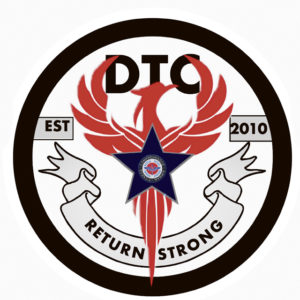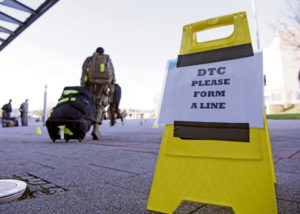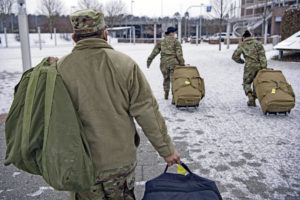
When service members are tasked to deploy there is a plethora of training to include computer, survival and combat training, in addition to all the administrative appointments.
“We dial people up to go into combat zones,” said Maj. Michelle Rodriquez, Deployment Transition Center program director. “Then we act like it’s a light switch that just turns off when we send them home.”
The DTC is a decompression program, Rodriquez said. Their mission is to provide reintegration skills and decompression opportunities for service members returning home.
Ramstein Air Base is home to the only center of this type within the U.S. Air Force. There are only two throughout the entire Department of Defense.
Many of those stopping at the DTC before heading home are coming from combat zones or other high stress deployments.
The DTC offers military personnel a few days to adjust back to a familiar lifestyle, relax and tap into coping skills for handling post-deployment stress.
“It was definitely eye opening,” said Master Sgt. Andrew Estacion, former DTC redeployer now cadre. “I was coming back from Afghanistan and was told I was going to the DTC last minute. I was hesitant because I was really wanting to get home but the course was awesome.”

Currently after landing, redeployers spend seven days with the DTC. During that time, they talk about their recent experiences, learn stress management skills and have time to relax in a variety of ways. The DTC facility includes rooms for games, music, art and massage, as well as their own chapel.
Though it’s not a medical program, the DTC has mental health technicians, a chaplain, and members from other Air Force occupations who assist redeployers with a healthy transition home.
“We talk about transitioning out of the deployment mindset,” said Estacion. “When all you think is ‘eat, sleep, go to work and the gym’ for six to 12 months in a combat zone or high stress area your behavior can change. The DTC gives you the time and tools to unwind back to your normal lifestyle.”
The DTC staff currently contains six permanent party members aided by 26 members deployed to Ramstein to assist.
Staff members like Estacion, sit down with returning service members and talk to them about different stressors they faced while deployed, and help them to develop coping skills.

Some of the changes the DTC hopes to assist redeployers with is their comprehensive fitness and the four areas that make it up: mental, social, physical and spiritual heath.
While many of those who first arrive to the DTC are ready to get home, a vast majority have found it worth every minute.
“On day one, they come in tired, they’re hungry, they want go home,” said Rodriquez. “So far, 93% of the individuals who have come through here have said they are happy they did.”
The DTC isn’t only helping those who are heading home, but also future deployers as well.
The DTC gathers information about different stressors deployed members face and forwards that information to key decision makers.
“We talk about things such as what gear, lodging and training they received, put that into an after action report and forward it to the functionals for those career fields,” said Rodriquez. “We have received a lot of feedback from their career field managers that they are utilizing that information to improve issues that have been identified.”

For many redeployers the DTC reminds them they’re not alone.
“I’m glad I’m back here as an instructor,” said Estacion. “The key thing in the DTC is you’re here to relax, to get out of that deployed environment and just try to find yourself again, be yourself and enjoy the extra time with your peers that you deployed with and make friends here at the DTC.”
Members can find out more about the DTC through the AF Connect app.


